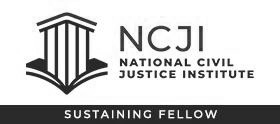Going the Distance for Central American Banana Plantation Workers
They say that seeing how the sausage is made will spoil the enjoyment of eating it. That’s pretty much what happened to Scott Hendler with bananas.
Since 1991, Scott has been fighting in the courts on behalf of thousands of Central American farm laborers who worked on banana plantations owned by a number of multinational corporations, including Dole Food Co. (Standard Fruit), Chiquita Brands Int’l (United Fruit), and The Dow Chemical Company. For years after the U.S. chemical industry knew that DBCP causes sterility – and even after it was banned in this country – American companies continued selling the product in Central America for use on the banana plantations. As a result of their occupational exposure to DBCP, the banana workers suffered sterility, sexual abnormalities, and an extraordinarily increased risk of developing cancer of the testes, kidneys, liver, and gastrointestinal tract.
Scott first got involved in this litigation while practicing with a Texas law firm that represented a group of Costa Rican workers. After that firm settled their cases and withdrew from further litigation, Scott founded his own practice and soon built a network with organized labor and various human rights groups in Ecuador, Guatemala, Costa Rica, and Panama. A consortium of the groups approached Scott because of his experience in the previous litigation and his background in international human rights law and policy. The organizations wanted a U.S. lawyer to represent their members, rather than local lawyers in whom the groups lacked confidence. Labor leaders affiliated with the AFL-CIO asked Scott to meet with their banana worker-members about a class action in the United States.
So Scott packed his bag and headed for Latin America. In Ecuador, he visited the Machala region at the invitation of local labor unions. At repeated worker assemblies, Scott explained DBCP exposure and how it caused sterility, along with the history of the previous DBCP litigation. Over time, Scott traveled from villages to small towns to plantations, speaking with handfuls of workers in each location to explain their legal rights.
In Panama, the two banana-growing regions in the north, Boca del Toro and Chiriqui, were completely controlled by United Fruit. Many of the workers are indigenous and the region is inaccessible by roads. Undaunted, Scott flew in on a small prop plane to meet with the workers who had asked him to visit.
In Costa Rica, Scott was invited to the banana-growing towns of Siquirres and Guapiles to speak with groups of workers about the U.S. lawsuits against Dole, Chiquita, Dow Chemical, and Shell Oil. From Costa Rica’s capital, San José, the trip into this region was a harrowing, white-knuckle drive east over the mountains on narrow, twisting roads full of blind spots where drivers used oncoming lanes of traffic to pass other vehicles.
Finally, in Guatemala, Scott met with a small labor rights organization helping to improve working conditions. The Guatemalan plantations were established in the first half of the 20th century by United Fruit. From the porch of an old hotel in the central port town of Puerto Barrios, you can see a single dock terminal where United Fruit workers load banana boats around the clock for export to the U.S. and Europe.
At one meeting with local union leaders on a United Fruit plantation near the Honduran border, Scott encountered private army guards in navy jumpsuits, carrying M-16s. The guards called for the main foreman, who pulled up in a shiny new pick-up truck, something you didn’t often see in Guatemala. After making his case for 20 minutes with the foreman, who was dressed in designer jeans with a Baretta M9 tucked into the waistband, Scott finally persuaded the man to allow him access to the plantation and its workers.
Here in the U.S., Scott’s journey with the litigation has been just as long and challenging. As of 2021, the case has been in the courts for 30 years, wending its way to the U.S. Supreme Court, the Delaware Supreme Court, and the Hawaii Supreme Court. It’s been to the United States Court of Appeals for the Ninth Circuit, the Fifth Circuit, and the Third Circuit. It is very possibly the most litigated toxic tort case in US history. But Hendler Flores Law is in it for the long haul. We don’t quit, and we don’t cut and run.














